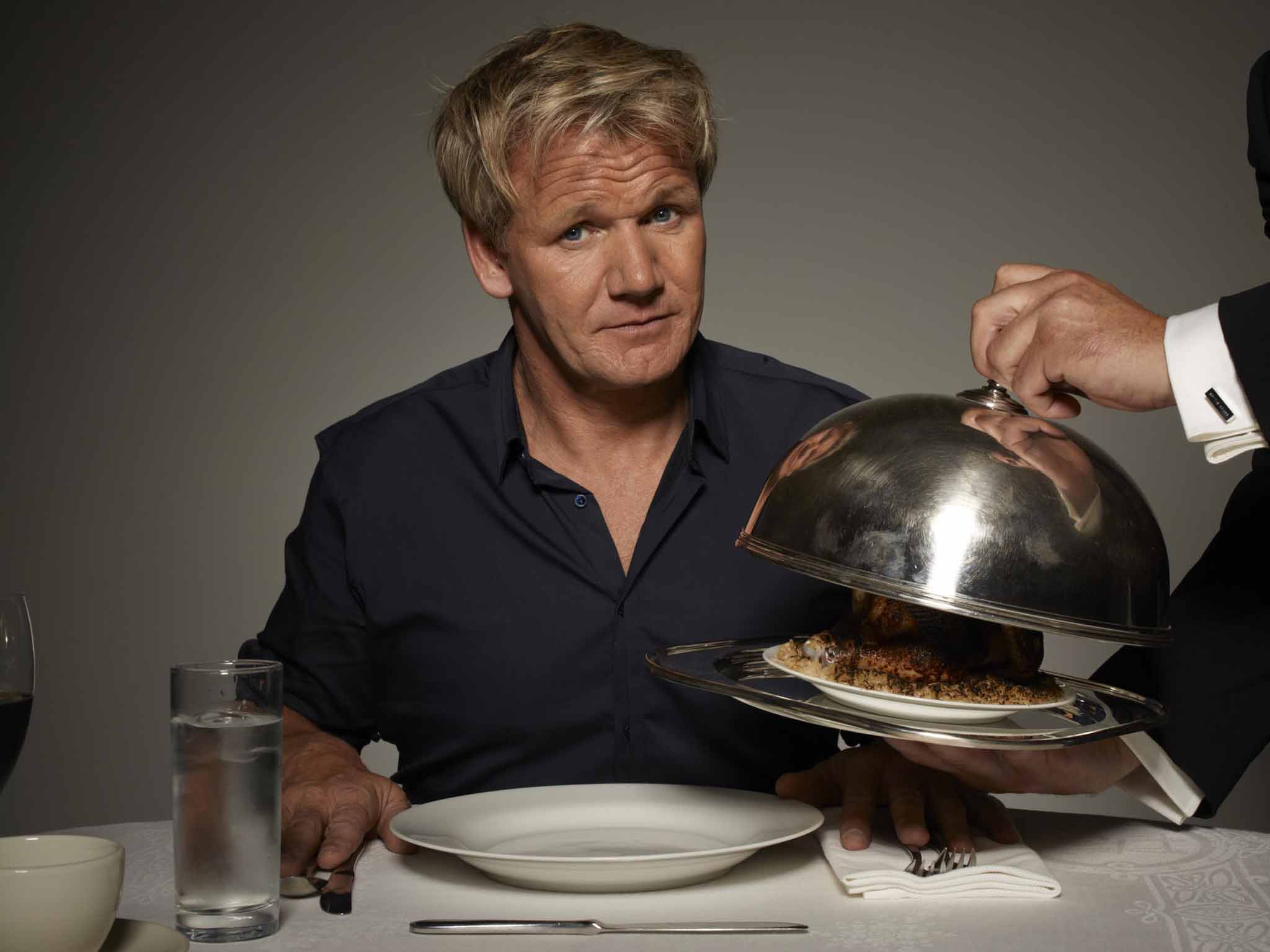Ramsay's Kitchen Nightmares USA, Channel 4 - TV review: 'An ersatz Italian restaurant in Colorado makes Ramsay flip his lid'

Your support helps us to tell the story
From reproductive rights to climate change to Big Tech, The Independent is on the ground when the story is developing. Whether it's investigating the financials of Elon Musk's pro-Trump PAC or producing our latest documentary, 'The A Word', which shines a light on the American women fighting for reproductive rights, we know how important it is to parse out the facts from the messaging.
At such a critical moment in US history, we need reporters on the ground. Your donation allows us to keep sending journalists to speak to both sides of the story.
The Independent is trusted by Americans across the entire political spectrum. And unlike many other quality news outlets, we choose not to lock Americans out of our reporting and analysis with paywalls. We believe quality journalism should be available to everyone, paid for by those who can afford it.
Your support makes all the difference.Did we appreciate Gordon Ramsay's Kitchen Nightmares enough when we had the chance? This week the TV chef announced the imminent (though not immediate) end of the TV show on which he built his reputation for gruff cookery critique. The first of a two-part Ramsay's Kitchen Nightmares USA (Channel 4) took place in Woodland Park, Colorado, known as the "City Above the Clouds" where the TV chef was hoping to improve the prospects of a decidedly non-celestial Italian restaurant.
Mangia Mangia's menu was Italian, but only because the other two restaurants in town were Chinese and Mexican. Owner Julie had never set foot in Italy – "I'm Irish!" she said indignantly, when asked. This in part explained the restaurant's interior, which looked more like a KFC in a motorway service station than an authentic Tuscan eatery, replete with its own drive-thru window.
All of which might have been excusable, if only the food had been edible. The veal piccata included uncooked veal, the lasagne was served frozen in the middle and the head chef was an untrained, unenthused 22-year-old called Trevor. The prep cook had it pretty spot-on when he summed up Mangia Mangia's culinary philosophy: "The food isn't cooked with much love – it's cooked with stress and a microwave." Can you blame Gordon Ramsay for being angry about that?
Rude men have long occupied a prominent place on television. But unlike Jeremy Paxman (whose disdain often suggested boredom) or David Starkey (whose insults seem motivated mostly by a desire for continued media attention) or Simon Cowell (who is merely playing his part in a pantomime), Ramsay's rudeness comes from the heart. He really cares – not about other people's feelings, obviously, or the ongoing survival of their businesses, but about maintaining basic standards in the catering industry. The diners of Woodland Park, Colorado, deserve better and Gordon Ramsay is determined to see that they get it.
Since the end of Kitchen Nightmares was announced, it's been reported that more than 60 per cent of the restaurants Ramsay attempted to reform during the show's 12 series have since closed, many within a year. This might be read as proof that his measures have failed, but it also demonstrates just how long "restaurants" – I hesitate to use the word – such as Mangia Mangia have been getting away with it. Now, after 10 years, the nightmare is over for lazy restaurateurs. That's very bad news for the rest of us.
It would also have been nice if a bit more effort had put into the compilation of Commonwealth on Film, which began a four-part series on BBC4 last night. Like last year's Britain on Film, it was a half-hour collection of archive clips organised around a theme. We saw interviews with Britons emigrating to Canada in the 1950s, Barbadian bus conductors learning how to operate a ticket machine in 1960s Chiswick, and we met Abdul, a morose Bangladeshi fisherman struggling to feed his family. More amusing were the barefoot lorry drivers on Australia's long, straight deserted roads: "If you're going along and you get a bit tired of it, get your book out and have a read," said one.
The theme was work, but beyond that any connecting thread was difficult to discern. Britain is familiar enough to British audiences that archive clips can be easily understood, but the countries of the Commonwealth are many and varied and Commonwealth on Film would have benefited from some more contextualising information. It was often near-impossible to establish where in the world the footage had been filmed, let alone which decade it had been filmed in.
Join our commenting forum
Join thought-provoking conversations, follow other Independent readers and see their replies
Comments